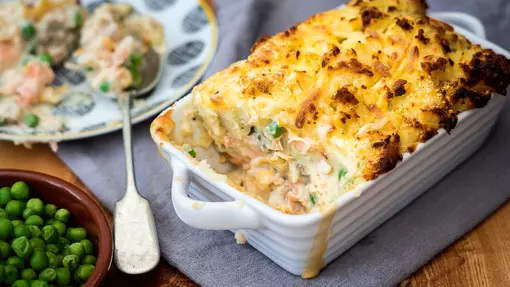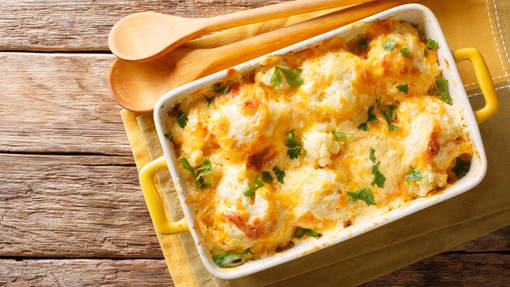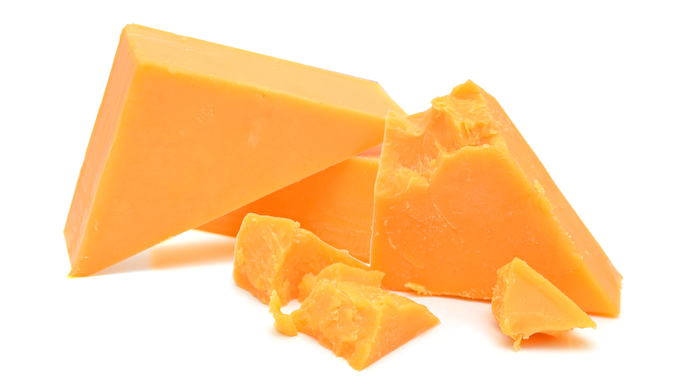Such a versatile food with many uses in sweet and savoury recipes. Hard cheese is made from cows milk and contains many nutrients such as calcium. The most popular hard cheese is cheddar and other choices include red Leicester and Lancashire cheese.
How to store
How to store hard cheese
Hard cheese should be stored in an airtight container in the fridge. Blue cheese can be wrapped in tin foil.
Freezing hard cheese
You can freeze hard cheese in a sealed bag or container for up to two months.
Cheese (Hard) top tips
How to freeze and defrost
To freeze: If you are buying a big block of hard cheese to make the most of a store bargain, grate it first and freeze to use later. This is good for cheese on toast, on top of baked beans or in an omelette.
To defrost: When you take food/ drink out of the freezer, it’s important to defrost it safely. Don’t defrost at room temperature. Ideally use a microwave on the defrost setting directly before using.
Eating the whole food
Save the end of your hard cheese (like parmesan), including the rind, for enriching soups and sauces. Remove when it’s done its magic.
Be fabulous with leftovers
Leftover /stale, hard cheese can be grated into mash or used over pasta dishes or chilli.
Buying tips
Buy the right pack size for your needs. Think about whether you’ll get through the whole pack before it goes dry or mouldy. If you’re not going to eat it all in time, freeze some for later.
Perfect portions
Use our portion calculator for a quick and simple way to check how much of this food to serve at mealtimes.
Valuing your Cheese (Hard) beyond the price tag
Goodness in food
Your food is more than its shape, colour and price. Your food has an important role to play to help keep you healthy and with enough energy to live your life how you wish to.
- A good source of calcium which helps to build bones and keep teeth healthy.
- Cheese is a source of protein which is needed to build and repair muscles and bones and to make hormones and enzymes.
- It’s high in saturated fats which can increase the amount of cholesterol in the blood. This could increase your risk of developing heart disease.
Food story
By the time your food arrives in your home, it’s already been on quite a journey starting with how it is made or grown and how your food reaches the supermarket.
So please help our food to finish its story in the most sustainable way, ensuring the planet’s resources that’s already used are put to good use. Take care of your food when it’s in your home and ensure every edible morsel is eaten - and that your food doesn’t end up in the bin!
Why not try these delicious recipes to use up Cheese (Hard)
This fish pie uses a pastry topping that doesn't need rolling out, just grating!

If you want another idea for using up leftover cream, this one's quick and simple. If you don't have quite enough cream, then crème fraiche or whole milk can be used to top up to what you need.

Great for using up odds and ends of cheese from the fridge, use any strong smelly cheese like Gruyere, Stilton and goats cheese.






